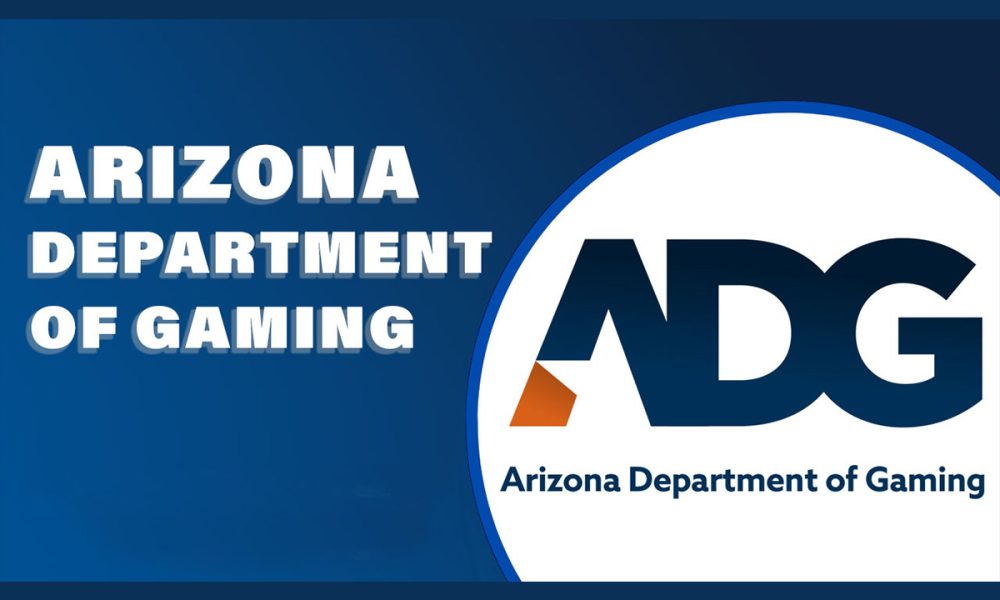

Compliance Updates
Exclusive Commentary from Vixio On Their AML Outlook Findings
Your recent AML Outlook report highlights over €36 million in fines issued across Europe in just one year. What recurring weaknesses or compliance gaps are regulators most commonly identifying in payments and e-money firms?
John Gidla (JG): Regulators continue to flag underinvestment in anti-financial crime controls as a key concern for payments and e-money firms. Common themes include weak governance, limited oversight, and fragmented controls, all of which increase vulnerability to financial crime. There’s a growing expectation that firms scale their compliance frameworks in line with their risk exposure and growth trajectory
The report mentions that AML compliance can be costly—yet the reputational and financial risks of non-compliance are even greater. What are the most cost-effective measures firms can implement today to strengthen their AML frameworks without overwhelming their budgets?
JG: While not all firms can afford advanced compliance tools, strong governance remains one of the most cost-effective ways to reduce risk. Practical steps such as training staff on emerging threats, embedding a culture of accountability, and regularly updating frameworks as the business grows can go a long way in strengthening AML resilience without major spend.
With the creation of the EU’s new AMLA authority, do you expect a more consistent and centralized enforcement approach across Europe? How might this change how firms prepare for inspections and adapt their compliance strategies?
JG: AMLA has the potential to bring greater consistency to AML enforcement across the EU, addressing long-standing issues caused by fragmented supervision and uneven implementation by national authorities. Its impact will depend on how much direct oversight it gains, how assertively it acts on cross-border risks, and whether it can close the regulatory gaps that have permitted high-profile scandals. Firms should expect more rigorous and standardised inspections and will need to ensure their compliance programmes are not only locally robust, but scalable across jurisdictions.
Vixio emphasizes the importance of a proactive rather than reactive compliance culture. In your view, what does a ‘proactive’ AML strategy look like in 2025, and what technologies or best practices are leading firms adopting to stay ahead?
JG: A truly proactive AML strategy in 2025 extends beyond technology to encompass a strong compliance culture at every level of the organisation. Leading firms understand that combating financial crime isn’t just the responsibility of the compliance team — it’s integrated into day-to-day operations, with senior leadership driving risk awareness across departments. In terms of technology, firms are increasingly adopting AI, machine learning, and automated monitoring systems to detect suspicious activity early and reduce human error. However, culture plays a critical role; firms that foster a compliance-first mindset and invest in ongoing staff training are better positioned to adapt to emerging threats and ensure that their compliance frameworks evolve in step with business growth and digital transformation. A proactive approach also means constantly reassessing risk and using data to predict and prevent issues, rather than just reacting to them. With regulations in constant flux, and regulators ramping up enforcement, proactive compliance looks like implementing strategies to anticipate regulations, not just react to them. In Vixio’s PC Outlook Report, we found that a clear majority of firms surveyed are using some form of outsourcing for their compliance functionality, turning to firms like Vixio to get ahead of regulatory change.
Thanks to John Gidla, Head of Payments Compliance at Vixio, for his insightful responses.
The post Exclusive Commentary from Vixio On Their AML Outlook Findings appeared first on European Gaming Industry News.
Arizona Department of Gaming
Arizona Department of Gaming Issues Cease-and-Desists on “Phoenix Dream Home Sweepstakes”

The Arizona Department of Gaming (ADG) issued cease-and-desist orders to Raffall, a company based in the UK, and to an Arizona resident using the platform to promote the “Phoenix Dream Home Sweepstakes,” currently advertised online and through a separate website, winthisazhome.com, which is marketing the chance to “Win a Luxury $1.3M Arizona Mountainside Home”.
According to the Department’s investigation, the promotion required participants to purchase entries for a prize to be awarded and promised either a home transfer or a cash payout, depending on sales volume. The investigation further determined that the organizers intended to profit from ticket sales. Based on these findings, the Department alleges the activity constitutes an illegal gambling operation under Arizona law.
As part of the enforcement action, Raffall has been directed to remove all gambling-related drawings or giveaways targeting Arizona residents, and the Arizona resident has also been ordered to cease promoting or conducting any unlawful gambling activity.
“Illegal gambling can take many forms and it does not matter if it is labeled a sweepstakes, raffle, giveaway, or drawing. Unregulated operations put Arizonans at risk because there is no oversight, and therefore no accountability or safeguards in place. The Department will continue to take enforcement action to protect consumers, and we urge the public to learn what is legal before participating in or hosting any gambling activity,” said Jackie Johnson, Director of the Arizona Department of Gaming.
The post Arizona Department of Gaming Issues Cease-and-Desists on “Phoenix Dream Home Sweepstakes” appeared first on Gaming and Gambling Industry in the Americas.
Australia
Entain’s Andrew Vouris to Speak at Regulating the Game 2026

Leading gaming law and regulation conference Regulating the Game has announced the newly appointed CEO of Entain Australia and New Zealand as its first Featured Speaker for its March 2026 event in Sydney.
The conference is scheduled to take place from 9 to 11 March 2026 at the Sofitel Sydney Wentworth.
Andrew Vouris, who was appointed CEO of Entain Australia and New Zealand in August, brings almost two decades of leadership experience in wagering, operations and innovation at some of Australia’s largest wagering operators.
His career spans senior leadership roles in Tabcorp’s multi-billion dollar wagering and media business, heading global operations of a pioneering esports and wagering platform, and partnering with private equity to build early-stage ventures in esports. Across these roles he has been deeply engaged in navigating complex regulatory and compliance challenges.
Since stepping into the CEO role at Entain Australia and New Zealand, Vouris has outlined his desire to embed a culture of “win, but not at all costs”, to return to the basics of selling bets and to lead innovation while ensuring customers are protected.
“I am grateful for the opportunity to speak at Regulating the Game 2026, which provides a unique global platform for advancing dialogue between regulators, industry and thought leaders,” Vouris said.
“At a time when public expectations and regulatory demands are at an all-time high, I look forward to sharing Entain’s vision for balancing sustainable growth, compliance leadership, and customer protection.”
Paul Newson, Principal at Vanguard Overwatch and founder of Regulating the Game, added: “Andrew’s leadership vision for Entain and his extensive track record across wagering and esports bring an important perspective to Regulating the Game 2026. His focus on culture, compliance and innovation aligns strongly with the values of the conference, and we are thrilled to feature his insights as part of this year’s program.”
The post Entain’s Andrew Vouris to Speak at Regulating the Game 2026 appeared first on European Gaming Industry News.
Balkan's
GLI Returns as Sponsor of the Regulators’ Roundtable at EEGS 2025

The Eastern European Gaming Summit (EEGS) proudly announces that Gaming Laboratories International (GLI) will once again return as a sponsor of the highly anticipated Regulators’ Roundtable at EEGS 2025, taking place on 27–28 November at Inter Expo Center, Sofia.
As the global leader in testing, certification, and professional services for the gaming industry, GLI has supported regulators, suppliers, and operators across more than 480 jurisdictions worldwide for decades. With a strong mission to ensure integrity, fairness, and transparency, GLI plays a pivotal role in shaping a trusted and sustainable global gaming environment.
The continued sponsorship of the Regulators’ Roundtable underscores GLI’s dedication to fostering dialogue, collaboration, and knowledge exchange between regulators and industry stakeholders. As one of the flagship sessions of EEGS, the Roundtable offers an exclusive platform to address pressing regulatory challenges, explore innovative solutions, and discuss strategies that will define the future of the sector.
EEGS 2025 will once again unite regulators, operators, suppliers, and thought leaders for two days of high-level discussions, networking, and knowledge sharing, reinforcing its position as the leading forum for gaming innovation and regulation in Eastern Europe and beyond.
Learn more & register here: https://eegamingsummit.com/register-for-super-early-bird-ticket/
For any sponsorship availabilities, see here: https://eegamingsummit.com/sponsorship-2025/
Together with partners like GLI, EEGS continues to be the meeting point for innovation, regulation, and collaboration in the gaming industry.
The post GLI Returns as Sponsor of the Regulators’ Roundtable at EEGS 2025 appeared first on European Gaming Industry News.
-

 gaming3 years ago
gaming3 years agoODIN by 4Players: Immersive, state-of-the-art in-game audio launches into the next generation of gaming
-
EEG iGaming Directory9 years ago
iSoftBet continues to grow with new release Forest Mania
-
News8 years ago
Softbroke collaborates with Asia Live Tech for the expansion of the service line in the igaming market
-
News7 years ago
Super Bowl LIII: NFL Fans Can Bet on the #1 Sportsbook Review Site Betting-Super-Bowl.com, Providing Free Unbiased and Trusted News, Picks and Predictions
-
iGaming Industry8 years ago
Rick Meitzler appointed to the Indian Gaming Magazine Advisory Board for 2018
-
News7 years ago
REVEALED: Top eSports players set to earn $3.2 million in 2019
-
iGaming Industry8 years ago
French Senator raises Loot Boxes to France’s Gambling Regulator
-
News7 years ago
Exclusive Interview with Miklos Handa (Founder of the email marketing solutions, “MailMike.net”), speaker at Vienna International Gaming Expo 2018







